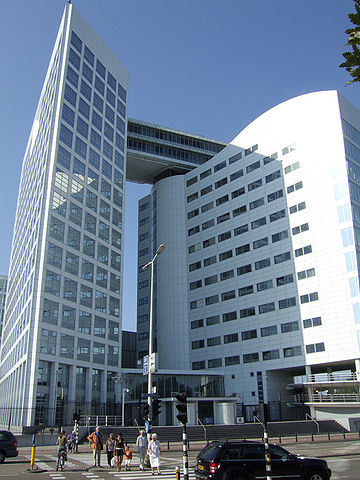
NAIROBI, Kenya — Judges at the International Criminal Court confirmed charges against four prominent Kenyans wanted on allegations they orchestrated violence that left an estimated 1,200 people dead after the late 2007 elections. The decision marked the “first solid step” in pursuit of justice for the victims and a crucial move in deterring violence ahead of upcoming presidential elections, said an advocate in the Kenyan capital.
Twitter (#Ocampo6 and #ICCverdict) and Facebook pages were abuzz this morning ahead of the announcement from The Hague, which was broadcast live at 1:30 local time, with many Kenyans urging calm. Kenyans have watched the many twists and turns of the judicial process with intrigue and high emotion after Kenyan courts failed to pursue those most responsible for fomenting post-election violence five years ago that pitted ethnic groups against each other. “The Hague: Day of decision,” proclaimed the leading Daily Nation newspaper.
Judy Gitau of the Kenyan chapter of the International Commission of Jurists welcomed the decision, saying that the judicial process up to this point has been “preliminary.” The country has “come a long way, and today we saw the first solid step toward bringing justice to the victims.” Gitau added, however, that a local transitional justice process is still needed to address the grievances of the 900 people who reported being raped during the post-election violence and the 600,000 who were displaced from their homes.
“We also need a commitment from the government that we won’t see a replay” of violence stoked by political leaders during the next polls, Gitau told Enough.
The Pre-Trial Chamber of the court found that there was sufficient evidence to put Deputy Prime Minister and Finance Minister Uhuru Kenyatta, Cabinet Secretary Francis Muthaura, former Education Minister William Ruto, and radio broadcaster Joshua Arap Sang on trial for crimes against humanity. Because of the inter-communal nature of the violence, Kenyatta and Muthaura will be tried together in single proceeding and Ruto and Arap Sang will be tried in another.
The court found that there was not sufficient evidence against former Minister of Industrialization Henry Kosgey and former police commissioner Maj. Gen. Mohammed Hussein Ali to proceed to trial. It left open the possibility of confirming charges if the prosecutor presents additional compelling evidence.
Uhuru Kenyatta and William Ruto have both indicated they intend to vie for the presidency in spite of the ICC’s charges against them.
Instability and violence have marred elections in Kenya since 1992, the year of the first-ever multi-party poll since independence. Accountability for atrocities committed during the particularly brutal 2007/2008 post-election period is widely seen as crucial for deterring politicians and partisans from stirring up violence should the polls not go their way. A poll released last week indicated 54 percent of Kenyans support the ICC process. Critics contend that Kenyan courts should try those responsible.
“There must be justice. Politicians have to see there is a price” for stoking violence, said Eric, a taxi driver in Nairobi who was on his way to a pub watch the televised announcement. He said he was content with the ICC process because he doesn’t have faith in the Kenyan judicial system to try the accused.
A date has not yet been set for Kenya’s next presidential and parliamentary elections, but the vote could be held as early as August or as late as March 2013.
Today’s ICC decision is a “resounding come-down on violence” and “a warning to politicians,” said Gitau of the International Commission of Jurists. But she emphasized there is a “genuine concern about stalling” that could undermine the prevention aspect, leaving the process incomplete and the country vulnerable when Kenyans go to the polls again.
Photo: ICC building in The Hague, Netherlands

